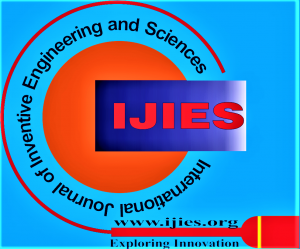![]()
The Use of Artificial Intelligence by Students in the Learning Process in the Context of Uzbekistan: Opportunity or Risk?
Pirniyazov Azamat Axmetovich
Pirniyazov Azamat Axmetovich, Student, Department of Digital Economics, Nukus State Technological University, Nukus (Republic of Karakalpakstan), Uzbekistan.
Manuscript received on 31 July 2025 | First Revised Manuscript received on 05 August 2025 | Second Revised Manuscript received on 08 August 2025 | Manuscript Accepted on 15 August 2025 | Manuscript published on 30 August 2025 | PP: 15-20 | Volume-12 Issue-8, August 2025 | Retrieval Number: 100.1/ijies.H111912080825 | DOI: 10.35940/ijies.H1119.12080825
Open Access | Editorial and Publishing Policies | Cite | Zenodo | OJS | Indexing and Abstracting
© The Authors. Blue Eyes Intelligence Engineering and Sciences Publication (BEIESP). This is an open access article under the CC-BY-NC-ND license (http://creativecommons.org/licenses/by-nc-nd/4.0/)
Abstract: University students in Uzbekistan have begun to frequently utilise artificial intelligence (AI) tools for their academic assignments as these technologies become more prevalent and user-friendly. This study examines the integration of these technologies into students’ learning practices, their primary objectives, and the potential benefits and drawbacks associated with their use. The research aims to understand whether AI tools are helping students develop academically or leading to new challenges, such as overreliance and a decline in critical thinking. To examine this, a survey was conducted involving 200 undergraduate students from three universities in Uzbekistan. The survey focused on how often students use AI tools, such as ChatGPT, Grammarly, and AI-based search engines, and for which academic tasks they are used. The results showed that over 60% of students use these tools frequently, mainly for checking grammar, summarizing information, and generating ideas. Many students believe that AI helps them save time and increase productivity. However, the study also highlighted some concerning trends. A large number of students admitted to using AI outputs without verifying their accuracy or considering ethical issues, such as originality and academic honesty. These findings suggest that while AI can support learning, it may also weaken essential academic skills if used passively or without reflection. Therefore, the study recommends that AI literacy be incorporated into university education, focusing not only on how to use the tools effectively but also on the ethical and critical aspects of their use. These insights provide a clearer understanding of how students interact with AI and what support they may need.
Keywords: AI Ethics, Artificial Intelligence, Critical Thinking, Educational Technology, Higher Education.
Scope of the Article: Artificial Intelligence and Methods
